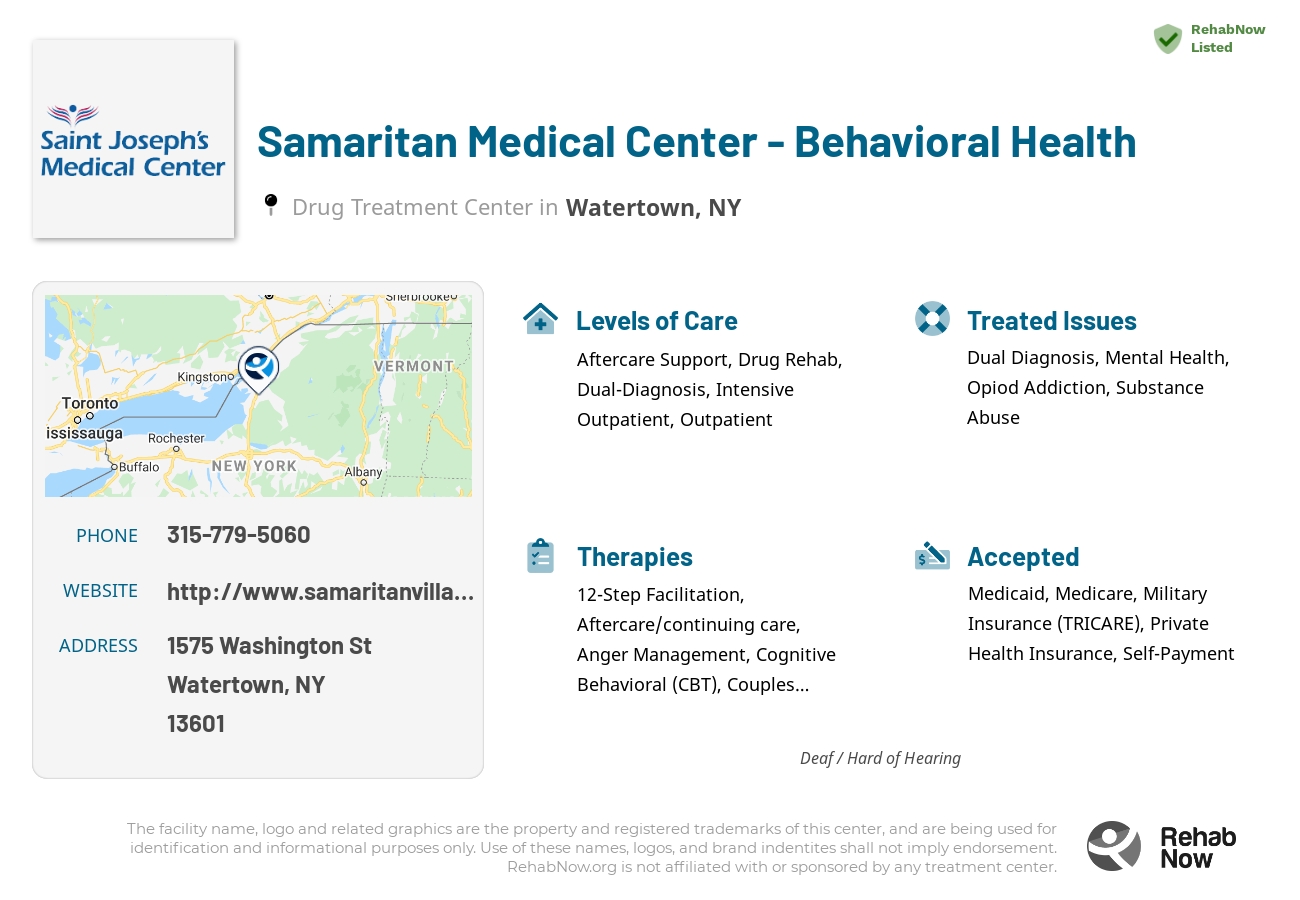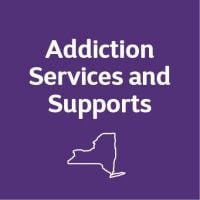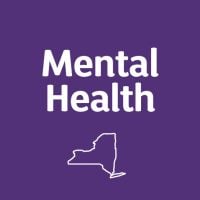Samaritan Medical Center - Behavioral Health
Drug Rehab Center in Watertown, New York
The Samaritan Medical Center - Behavioral Health is an accredited rehab facility which provides a wide range of evidence-based treatment programs, including intensive outpatient, outpatient, and detox services to individuals with addiction and mental health issues that accept most private health insurance policies.
About This Watertown, NY Facility
Samaritan Medical Center - Behavioral Health, located in Watertown, New York, is a comprehensive not-for-profit health system that specializes in treating alcoholism, drug addiction, dual diagnosis, mental health, and substance abuse. With roots dating back to 1881, the facility has grown to meet the changing needs of the region while maintaining its community-focused approach.
Holding fast to its mission of caring for neighbors, Samaritan Medical Center - Behavioral Health provides exceptional medical treatment and compassionate support to individuals seeking recovery from addiction and mental health challenges.
Accredited by JCAHO, the facility offers a range of evidence-based treatment methods and levels of care, including aftercare support, drug rehab, dual-diagnosis treatment, intensive outpatient, outpatient, and detox services.
- Personalized treatment plans tailored to individual needs
- Medication-assisted treatment and recovery programs
- Experienced and certified medical professionals
- Comprehensive approach to addiction and mental health
Samaritan Medical Center - Behavioral Health focuses on addressing various substance addictions, including opioid addiction, drug addiction, and alcoholism, as well as co-occurring mental health disorders.
For individuals struggling with opioid addiction, the facility provides specialized care and support to help them overcome their dependence and regain control of their lives. Through a combination of medical treatment, therapy, and aftercare services, Samaritan Medical Center - Behavioral Health empowers individuals to achieve lasting sobriety and improved overall well-being.
Genders
Ages
Modality
Additional
Accreditations

JCAHO
Conditions and Issues Treated
Substance abuse is the excessive use of any type of drug. This includes alcohol, medications and illegal drugs. Substance abuse is treated with a combination of physical and mental treatments. Samaritan Medical Center - Behavioral Health patients detox and follow up with therapies that target the underlying cause of the addiction.
Opioid addiction is one of New York‘s most prominent forms of addiction. Drugs, including heroin, oxycontin, and fentanyl, are the most common. To relieve pain, or ease other ailments, they are professionally prescribed, but they are often abused because they and the feelings they give are addictive.
Addiction is treated by detoxifying the body, so the medications’ chemicals are no longer impacting the individual. Samaritan Medical Center - Behavioral Health offers therapies to correct behavior and target the root of the problem are supplemented during and throughout treatment.
Levels of Care Offered
This center offers a variety of custom treatment tailored to individual recovery. Currently available are Aftercare Support, Detox, Drug Rehab, Dual-Diagnosis, Intensive Outpatient, Outpatient, with additional therapies available as listed below.
Detoxification is the mainstay of drug addiction treatment. Recovery from drug addiction requires regular medical monitoring, temporary medication use, and other techniques.
If you or someone you know has a substance abuse problem in Watertown provide various methods for drug and alcohol rehabilitation.
Intensive Outpatient Programs (IOPs) are treatment programs suitable for people who wish to stay at home while undergoing treatment. IOPs like Samaritan Medical Center - Behavioral Health make it possible for individuals to carry on with their responsibilities at work or school, in or near Watertown, NY. It’s easy to find an IOP center that offers individualized treatment protocols.
In outpatient programs at Samaritan Medical Center - Behavioral Health, the Watertown resident can live with their family while continuing with their job or studies. Treatment includes educating the patient on drug abuse, medications, and counseling sessions at the individual or group level.
Aftercare support refers to the follow-up care provided after the initial rehab program. The quality of aftercare support plays an important role in preventing relapses and sustains recovery. Aftercare support at Samaritan Medical Center - Behavioral Health is personalized according to the needs of the patient in New York.
Samaritan Medical Center - Behavioral Health‘s Therapies & Programs
Customized individual therapy is counseling involving you and your counselor at Samaritan Medical Center - Behavioral Health. This builds a personal and trusting relationship so you can truly be yourself and express any emotions as you feel them. Individual therapy leads to greater peace and understanding about your triggers for addiction and coping strategies to prevent relapse.
Substance abuse does a number on an individual’s relationship with other people, particularly in marriage. Spousal relationships bear the brunt of alcohol and drug dependence. Therefore, it becomes critical to submit the relationship to couples therapy to prevent straining it further. Most programs only zero in on the individual with substance addiction without factoring in the importance of the other half’s emotional support.
However, some facilities, like Samaritan Medical Center - Behavioral Health in Watertown, New York, offer couples therapy options to manage intimate partnerships amid the recovery process. Other couples-focused treatment plans can provide the patient and their partner tools to get things back to normal, support each other, and the patient’s sobriety.Group Therapy is a type of counseling that occurs between a bunch of strangers. These groups are suitable for patients who are not confined in a treatment facility, but group sessions are also common in inpatient rehab programs. Group therapy is led by a trained individual at Samaritan Medical Center - Behavioral Health in Watertown, NY and consists of members from different stages of recovery.
The goal of group therapy sessions is to foster hope and a sense of belonging, share information, and learn coping mechanisms. It also helps to have people who can relate to what you’re going through. Good behaviors can also be contagious, and participants can learn from one another.
Unresolved trauma is often a key reason why many patients resorted to substance abuse. Trauma could be physical abuse, sexual abuse, war, natural disasters, divorce, accident, loss of a loved one, etc. If trauma is the primary cause of substance abuse, then both issues must be addressed.
Dialectical Behavior Therapy (DBT) is an improved version of Cognitive Behavioral Therapy (CBT) DBT is a treatment of choice for people being treated at Samaritan Medical Center - Behavioral Health whom are suffering from self-harming behaviors. Conditions such as obsessive-compulsive disorder and borderline personality disorder also benefit from DBT.
Cognitive Behavioral Therapy (CBT) is an approach and method in psychotherapy. Samaritan Medical Center - Behavioral Health asks people to investigate how their thoughts, including habitual, negative, and inaccurate ways of thinking affect behaviors. CBT is based on the idea that rigid, inflexible ways of thinking cause people to have a limited ability to cope with stress
The 12-step program is a part of substance abuse treatment offered at Samaritan Medical Center - Behavioral Health. It was initially developed by the founders of Alcoholics anonymous. The program provides the benefit of cognitive restructuring. It refers to the process of change in the negative thoughts that leads to long-term benefits.
Nutrition therapy, which is also known as Medical nutrition therapy (MNT) involves providing healthy diet and improving the eating habits of the patient. Expert dieticians provide individualized meal plan, that addresses the specific nutritional deficiencies and the nutritional impact associated with the medicines that are given as a part of the treatment. It helps to overcome the food cravings that are seen in certain addictions and also addresses the co-occurring conditions such as eating disorders.
Nutrition therapy is very important to support the different therapies provided as a part of comprehensive care. Nutrition therapy also teaches the associated life skills such as cooking healthy food and grocery shopping.
Nicotine replacement is a way to move towards stopping smoking or using any form of nicotine. This can be nicotine gum or nicotine patches. The process of working with trained staff at Samaritan Medical Center - Behavioral Health in setting a goal quit date, using nicotine replacement and gradually decreasing nicotine intake is proven to help.
Patient Experience
Experiential Therapy at Samaritan Medical Center - Behavioral Health
Experiential therapy at Samaritan Medical Center - Behavioral Health includes helping people work through emotional disorders by participating in events in real-time. It moves away from conventional talk therapy to discuss their concerns and emotions by making patients play roles or use props. It allows people to handle trauma and feelings healthily, reducing the need to resort to alcohol and substances in Watertown, NY.
Payment Options Accepted
For specific insurance or payment methods please contact us.
Is your insurance accepted?
Ask an expert, call (888) 674-0062
Samaritan Daytop Village Associated Centers
Discover treatment facilities under the same provider.
- Samaritan Daytop Village - 3rd Avenue in Bronx, NY
- Samaritan Village - Rhinebeck in Rhinebeck, NY
- Samaritan Daytop Village in Blauvelt, NY
- Samaritan Daytop Village - Veritas House Community Residence in New York, NY
- Samaritan Village - Residential in Rhinebeck, NY
Learn More About Samaritan Daytop Village Centers
Additional Details
Specifics, location, and helpful extra information.
Watertown, New York 13601 Phone Number(315) 779-5060 Meta DetailsUpdated April 15, 2024
Staff Verified
Patient Reviews
There are no reviews yet. Be the first one to write one.
Watertown, New York Addiction Information
More than 2 million New Yorkers are currently suffering from some type of substance abuse and many of those are minors. Alcohol abuse, in particular, is prevalent among those underage. As a result of the high prices and regulation of prescription drugs, many New Yorkers turn to heroin instead. This has led to a serious heroin epidemic in the state.
About 9% of the population in Watertown abuses drugs, which is slightly higher than the national average. The city has seen a sharp increase in overdoses in recent years. Alcohol abuse is also rampant with about 17% of people struggling with alcoholism and 19% who abuse drugs are addicted to alcohol. 12-step programs, such as Alcoholics Anonymous and Narcotics Anonymous, are support groups that can help you in your recovery.
Treatment in Nearby Cities
- Rome, NY (55.9 mi.)
- Salamanca, NY (188.3 mi.)
- South Ozone Park, NY (250.6 mi.)
- Norwood, NY (71.6 mi.)
- Yaphank, NY (264.2 mi.)
Centers near Samaritan Medical Center - Behavioral Health
The facility name, logo and brand are the property and registered trademarks of Samaritan Medical Center - Behavioral Health, and are being used for identification and informational purposes only. Use of these names, logos and brands shall not imply endorsement. RehabNow.org is not affiliated with or sponsored by Samaritan Medical Center - Behavioral Health.











